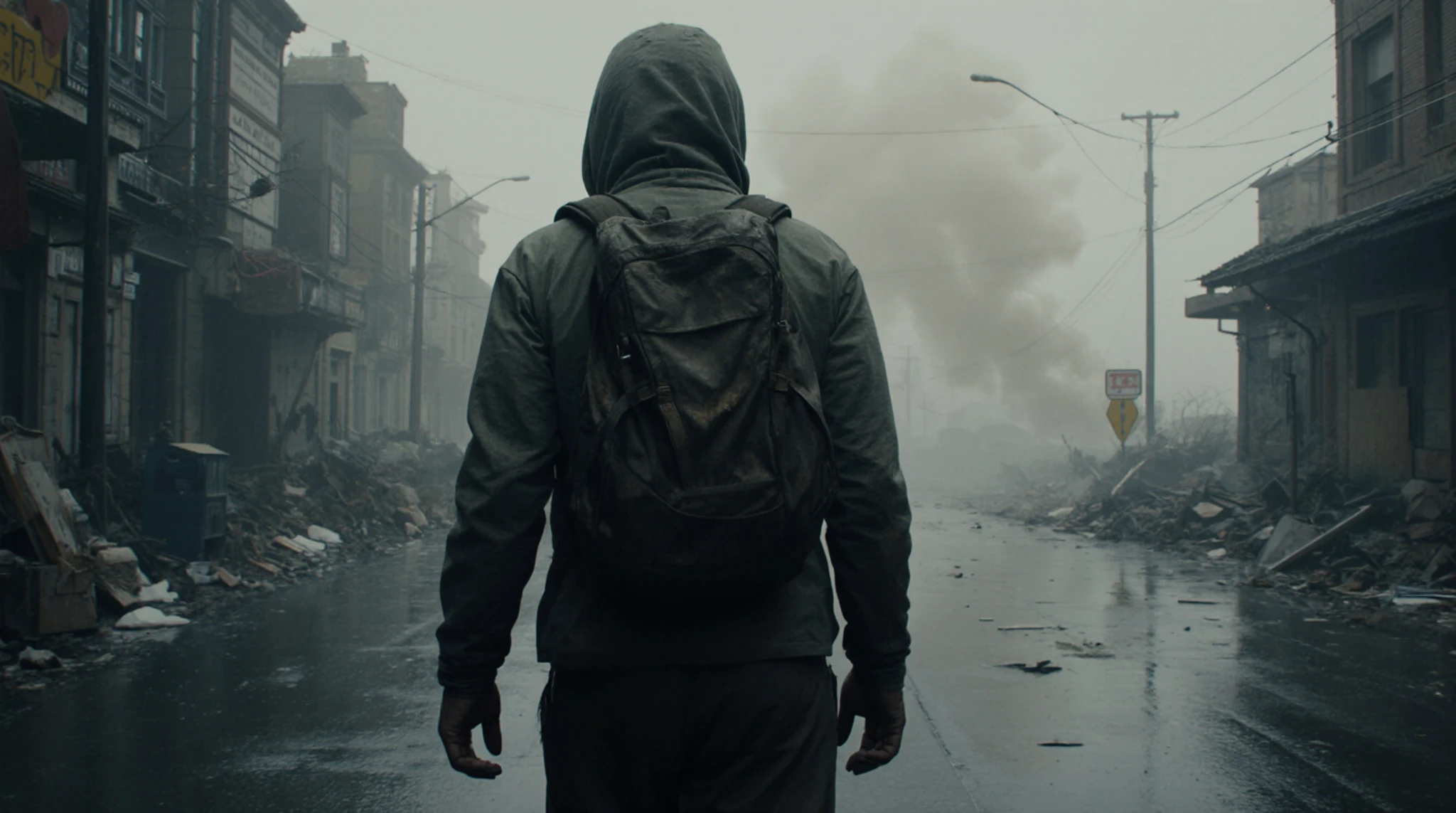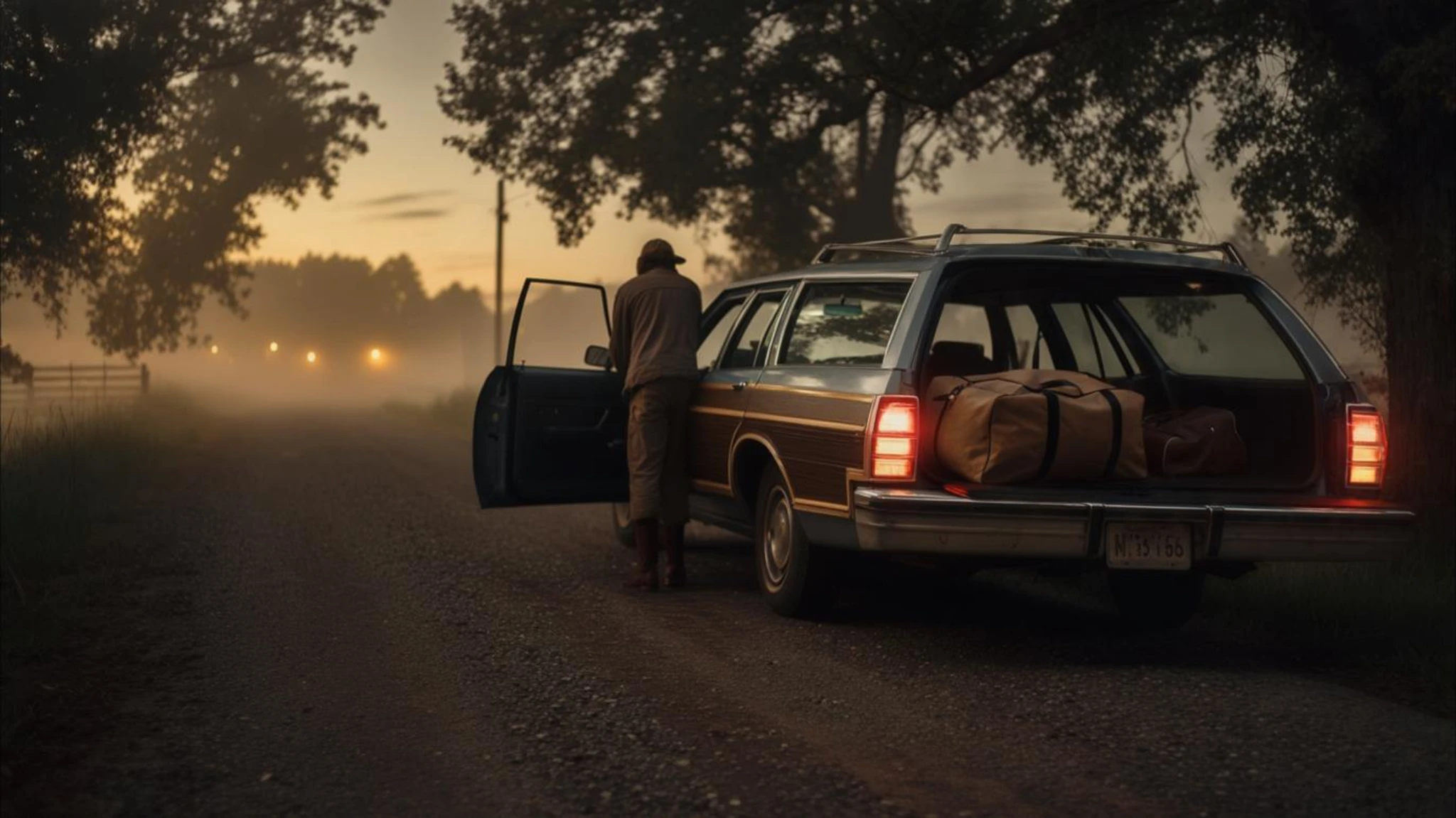There may come a time when staying in your country is more dangerous than leaving it. Martial law has taken hold. Dissidents are disappearing. Ethnic, political, or religious persecution has become deadly. Or maybe war has come to your doorstep. When the only way to survive is to flee—and legal exits are shut down—you might have to do something most people never consider: cross a border illegally.
This isn't about crime. This is about survival. It’s about escaping an oppressive regime, a collapsing government, or a war zone with your life intact. In a world spiraling into chaos, knowing how to move across territory without detection could be the difference between freedom and death.
Crossing borders without papers or permission is dangerous, difficult, and illegal by definition. But it’s also something that millions of people have done for centuries to escape tyranny, violence, and persecution. If you're ever forced into that situation, you’ll need more than courage—you’ll need skills, planning, and stealth.
This is your guide to making that crossing—quietly, quickly, and with the highest possible chance of survival.
Know Why You’re Crossing—and What You’re Facing
Before you even move, you need to assess why you’re crossing, where you’re going, and what you’re willing to risk. Are you fleeing persecution? Escaping conscription? Avoiding imprisonment or execution? The answer matters, because it defines how far you’ll go and what you’ll risk to get out.
Most borders are heavily guarded in times of crisis. That means patrols, cameras, sensors, drones, and landmines—especially along militarized zones. Even peacetime borders may become deadly during collapse scenarios. Your journey may involve mountains, rivers, desert crossings, or urban sprawl. You’ll be facing nature, armed forces, and desperate people all at once.
The more you know about the terrain, border patrol routines, and political landscape, the better your odds. Start gathering intelligence well before you plan to move.
The Golden Rule: Blend In and Carry Little
The biggest mistake people make when fleeing is trying to take too much with them. Large packs, flashy gear, or military-style clothing will make you stand out immediately. Your goal is to look like nothing.
Dress like a local. Wear neutral, worn clothing. No tactical vests, no camo, no bright colors. Avoid backpacks if you can—use a small shoulder bag or hide supplies under your clothing. Travel light, but bring what matters most: water, a bit of food, a knife, basic medical supplies, and some cash in local currency.
Don’t carry anything that connects you to a political movement, military unit, or resistance group. If you’re caught, even a small detail—like a patch or banned book—can cost you your life.
Pick the Right Time and Terrain
The best time to move is when people are least alert—late at night or just before dawn. Avoid moonlit nights unless you’re using terrain that offers heavy cover. Cloudy, stormy weather can work to your advantage, especially if it masks sound or reduces visibility.
Use terrain to hide your movements. Rivers, wooded areas, mountain passes, and abandoned infrastructure can all help mask your presence. The more rural the area, the better. Stay away from official border checkpoints entirely—they’ll be the first places locked down and patrolled.
If you have to cross through urban or semi-urban zones, move fast and avoid well-lit streets. Stick to alleys, rail lines, service tunnels, and old paths. Blend in when you must, vanish when you can.
Avoid Patrols, Cameras, and Sensors
Modern border enforcement isn’t just about fences. You’ll be facing a digital web of motion detectors, infrared cameras, drones, ground sensors, and sound traps. In some regions, even AI surveillance and biometric scanners are used.
Move slowly and cautiously in known patrol zones. Avoid straight paths or open fields. If you must cross a road, crawl or belly-slide at night, and do it in less than 10 seconds. Look for natural sound cover—wind, running water, or passing vehicles.
Infrared cameras pick up body heat, so using thermal blankets, heavy foliage, or even mud can reduce your signature. If you hear a drone overhead, freeze under cover. Don’t run—it’ll see you.
The Crossing Itself: Stay Low, Stay Silent, Keep Moving
When it’s time to make your final move across the border, there’s no turning back. You’ll be exposed, alone, and vulnerable. Keep your movements tight and deliberate. Avoid talking, use hand signals if you’re with others. If you drop something, don’t go back for it.
If you must go prone and crawl, do it in short bursts. Every movement risks detection, so choose them wisely. Carrying a stick or rope can help probe terrain for traps or unstable ground. Watch for wires, metal, or signs of human activity.
If you cross successfully, don’t celebrate yet. Border areas are often double-patrolled, with overlapping zones of control. Keep moving for several miles before stopping. Get clear of the border zone entirely before resting or seeking help.
What If You’re Caught?
This is the worst-case scenario. If you’re caught, you must stay calm. Your behavior in the first minute may determine your fate. Many border guards are under orders to detain, interrogate, or worse.
If capture is inevitable, hide your true identity and intentions unless you're seeking asylum. Use a cover story if possible, but be consistent and believable. If the border you crossed leads to a hostile nation, surrendering may lead to imprisonment or execution. In that case, escape should remain your top priority—even after capture.
If you're detained by authorities in a country that’s relatively stable, your focus shifts to surviving interrogation, avoiding deportation, and possibly requesting refugee status.
But don’t count on being treated fairly—you are a criminal in their eyes, no matter your reasons.
After the Crossing: Disappear Again
If you make it through, your journey isn’t over. Once you’re in a new country, you’re still vulnerable. Police and military may be on alert for illegal crossers, especially if you came from a conflict zone.
Avoid cities at first. Travel low and slow. If you have contacts, use them. If not, find a safe place to rest, wash, and assess. Don’t use your real name. Don’t contact old acquaintances. Disappear again.
Eventually, you’ll need a long-term plan. Will you keep moving? Seek asylum? Find underground work? Whatever you choose, your survival will now depend on your ability to stay invisible, adapt quickly, and rebuild without being found.
Final Thoughts: Could You Do It If You Had To?
Crossing a border illegally is one of the most dangerous things a person can do. But when it’s your only option—when the alternative is death or disappearance—you’ll need more than courage. You’ll need discipline, stealth, and a cold, clear plan.
For most people, this will never be more than a thought experiment. But for others—for those already living in war zones, under tyranny, or targeted for who they are—it’s real. And in a world that feels more unstable by the day, it might become real for you, too.
So ask yourself: If the walls went up tomorrow, would you know how to get out?



